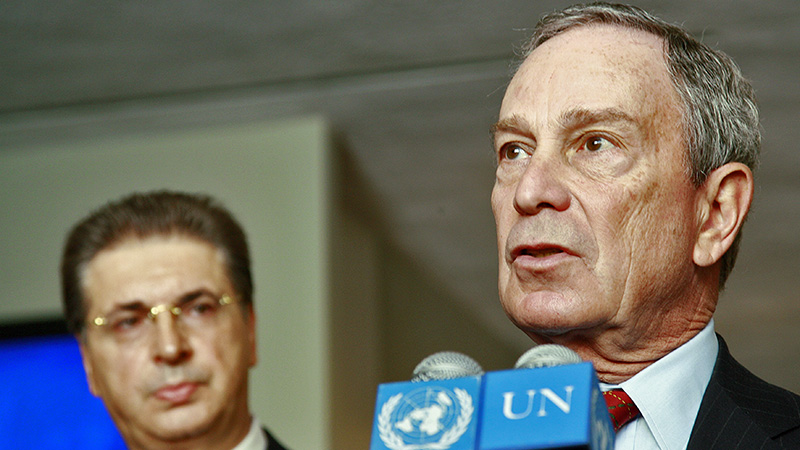A UK vote to leave the European Union would hit efforts to tackle global warming, former New York mayor Mike Bloomberg and UN climate chief Christiana Figueres warned on Wednesday.
“It is the most serious problem facing the world with the potential to literally destroy all life as we know it and turn this planet into a bare planet like Mars,” said Bloomberg, calling on countries to join forces to reduce global greenhouse gas emissions.
“It’s better to be close to solve problems rather than pulling apart,” he added, building on a LinkedIn post on Monday arguing that a Brexit would harm global trade and cooperation on security and climate change.
Figueres said a vote to leave would see the UK having to rework its contribution to the 2015 Paris climate deal, which could come into force as early as this year.
“In principle we see humankind moving to larger tents of collaboration rather than the opposite way,” she said.
Brexit: Why a vote to leave the EU is bad news for the climate
The pair were speaking in Brussels at the launch of a rebooted climate initiative focused on urban areas involving over 7000 cities and regions.
It will replace the EU’s Covenant of Mayors and Bloomberg’s Compact of Mayors, which have merged to form an alliance representing around 600 million people.
So far over 5000 cities have started work on how they will meet the goals laid out under the Paris climate agreement, a sign said Bloomberg that sub-national leaders can drive the green agenda.
“Cities can put pressure on national and federal governments – they aren’t where the problem is but they are part of the solution,” he said.
Explosive population growth and the rise of mega-cities in Asia and Africa meant local governments would be key in supporting the growth of electric cars and clean energy, said Figueres.
“One lesson in 21 years of UN negotiations is this has to be done together, it cannot be done individually,” she said.
“We will quickly move to clusters of mega cities where boundaries of mega cities will be eradicated… most of those are growing in China, India and Nigeria so the developing world is critical to this.”
